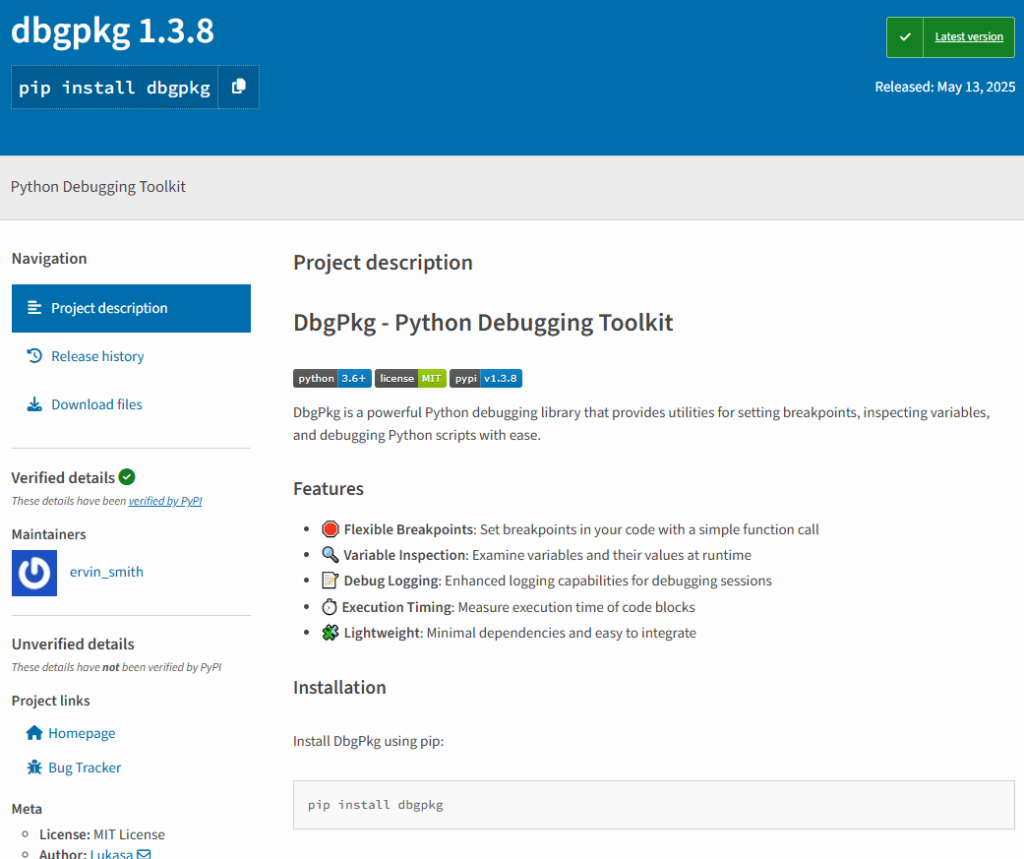Pro-Ukraine Group Targets Russian Developers with Python Backdoor

ReversingLabs discovers dbgpkg, a fake Python debugger that secretly backdoors systems to steal data. Researchers suspect a pro-Ukraine hacktivist group is behind the attack on the PyPI repository especially those used by Russian developers.
Cybersecurity researchers at ReversingLabs (RL) have discovered a new malicious Python package, named dbgpkg, that masquerades as a debugging tool but instead installs a backdoor on developers’ systems. This backdoor allows attackers to run malicious code and steal sensitive information. By analysing the techniques used, RL suspects a hacktivist group known for targeting Russian interests in support of Ukraine may be involved.
Reportedly, the dbgpkg package, detected on Tuesday by the RL threat research team, contained no actual debugging features. Instead, it was designed to trick developers into installing a backdoor, effectively turning their development machines into compromised assets.
What made “dbgpkg” particularly noteworthy was its sophisticated method of implanting the backdoor. Upon installation, the package’s code cleverly modifies the behaviour of standard Python networking tools (requests and socket modules) using a technique called “function wrapping” or “decorators.” This allows the malicious code to remain hidden until these networking functions are used by the developer.
As per RL’s investigation, shared with Hackread.com, the malicious wrapper code first checks for a specific file, likely to see if the backdoor is already present. If not, it executes three commands. The first downloads a public key from the online Pastebin service.
The second installs a tool called Global Socket Toolkit, designed to bypass firewalls, and uses the downloaded key to encrypt a secret needed to connect to the backdoor. The third command then sends this encrypted secret to a private online location. This multi-stage process, along with using function wrappers on trusted modules, makes the malicious activity harder to detect.
RL researchers found similarities between the dbgpkg backdoor and malware previously employed by the Phoenix Hyena hacktivist group, which has been active since 2022 and is known for targeting Russian entities.
This group typically steals and leaks confidential information on their Telegram channel “DumpForums.” One notable incident linked to this group was the alleged breach of the Russian cybersecurity firm Dr. Web in September 2024.
Another similarity was an earlier malicious package involved in the same campaign, discordpydebug (discovered in early May by Socket), which had the same backdoor as an earlier version of dbgpkg. Discordpydebug, posing as a debugging tool for Discord bot developers, was uploaded shortly after Russia invaded Ukraine in March 2022. Another package, requestsdev, also part of this campaign and uploaded by the same likely impersonated author ([email protected], mimicking popular developer Cory Benfield), contained the same malicious payload.
However, RL researchers couldn’t definitively attribute this campaign to Phoenix Hyena based on backdooring techniques as it could be a copycat’s work too. Nevertheless, the timeline of related malicious packages suggests a politically motivated operation by a persistent threat actor.
“And, with a campaign driven by geopolitical tensions and the continuing hostility between Russia and Ukraine, RL researchers believe that more malicious packages are almost certain to be created as part of this campaign,” researchers concluded.
HackRead






